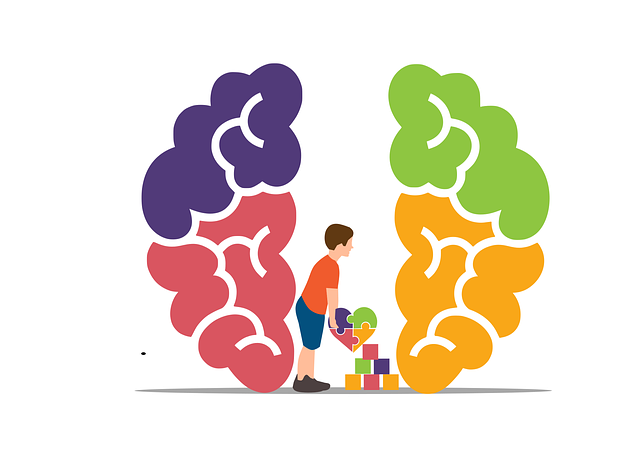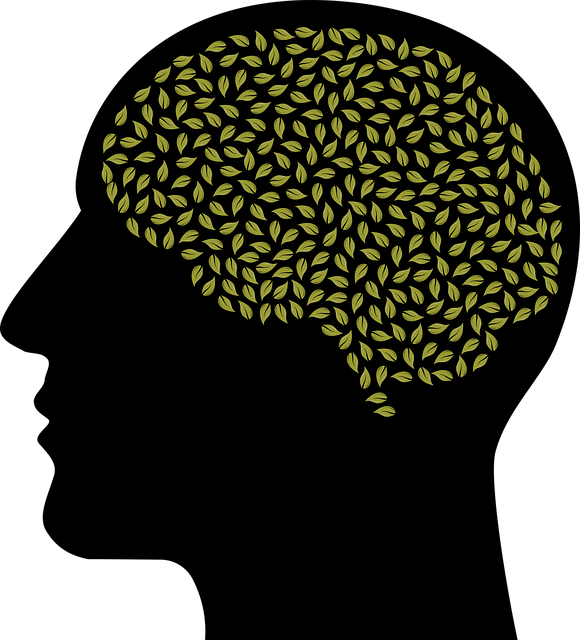Oppositional Defiance Disorder (ODD) is a manageable behavioral issue in kids aged 3-12, characterized by defiant behavior and rule-breaking. Early intervention using structured behavioral therapy and positive thinking exercises significantly improves outcomes. These strategies, including mental wellness journaling and self-awareness techniques, empower children to challenge negative thoughts, enhance emotional regulation, and foster healthier coping mechanisms. Integrating these practices at home and in therapy sessions benefits both the child's well-being and family dynamics. Regular progress tracking through simple tools allows for adjustments, promoting a positive, supportive environment and successful ODD management.
“Unleash the transformative power of positive thinking in managing Oppositional Defiance Disorder (ODD) among young children. This comprehensive guide explores an innovative therapeutic approach, offering a structured yet flexible framework for practitioners and parents alike. We delve into designing engaging exercises that foster positive behaviors, provide implementation strategies for home and therapy settings, and emphasize tracking progress to ensure success. Discover how these practices can revolutionize therapy for young children with ODD, promoting healthier interactions and improved overall well-being.”
- Understanding Oppositional Defiance Disorder (ODD) in Young Children
- The Power of Positive Thinking: A Therapeutic Approach
- Designing Effective Positive Thinking Exercises
- Implementing the Exercises at Home and in Therapy Sessions
- Tracking Progress and Celebrating Success
Understanding Oppositional Defiance Disorder (ODD) in Young Children

Oppositional Defiance Disorder (ODD) is a common behavioral problem among young children, typically aged 3 to 12 years old. It’s characterized by frequent and persistent arguments with authority figures, refusal to comply with rules, and angry and resentful behavior. While it can be challenging for parents and caregivers, ODD is treatable through various therapies designed to help both the child and their family.
Early intervention is crucial in managing ODD, preventing potential burnout among both the child and their primary caregivers, and fostering depression prevention strategies. One effective approach is behavioral therapy, which provides clear rules, consistent consequences, and positive reinforcement to encourage more adaptive behaviors. Mental wellness journaling exercises can also be a valuable guidance tool, helping children process emotions, gain insights into their behaviors, and promote better coping mechanisms.
The Power of Positive Thinking: A Therapeutic Approach

The power of positive thinking extends far beyond mere optimism; it’s a therapeutic approach with profound implications, especially for young children grappling with Oppositional Defiance Disorder (ODD). By focusing on shifting perspectives and fostering self-awareness exercises, therapists can help these children challenge negative thought patterns that contribute to their defiance. This process isn’t just about changing behavior; it’s about cultivating an inner environment where resilience, hope, and emotional regulation thrive.
This therapeutic approach empowers young minds to gain control over their thoughts and emotions, a crucial step in managing anxiety relief and preventing burnout among healthcare providers who work with these children. By integrating self-awareness exercises into treatment plans, therapists can guide ODD patients towards healthier coping mechanisms, enabling them to navigate life’s challenges with greater ease.
Designing Effective Positive Thinking Exercises

Designing effective positive thinking exercises for young children with Oppositional Defiance Disorder (ODD) requires a thoughtful and tailored approach. These exercises should be engaging, age-appropriate, and aligned with their unique needs. Incorporate activities that promote coping skills development, such as mindfulness practices or visualisation techniques, to help children manage their emotions and impulses more effectively.
When creating these exercises, it’s essential to integrate conflict resolution techniques into the mix. Role-playing scenarios can be a powerful tool to teach children how to express their feelings constructively, assert themselves in social situations, and resolve disagreements peacefully. By doing so, they learn valuable life skills that support not only their therapy for young children with ODD but also their overall well-being and personal growth.
Implementing the Exercises at Home and in Therapy Sessions

Implementing positive thinking exercises is a powerful approach to addressing Oppositional Defiance Disorder (ODD) in young children, whether at home or in therapy sessions. For parents seeking to support their child’s mental well-being, incorporating these strategies into daily routines can foster a more positive environment and enhance communication. Therapy for Young Children with ODD benefits greatly from structured practices, making exercise implementation a key component.
In therapy settings, professionals can utilize these exercises as part of a comprehensive Risk Management Planning for Mental Health Professionals, aiming to create a safe and encouraging atmosphere. The practices promote self-awareness and emotional regulation skills, which are essential for managing ODD symptoms. Additionally, community outreach program implementations that educate parents on these techniques can empower them to become active participants in their child’s therapy, boosting confidence and strengthening the therapeutic alliance.
Tracking Progress and Celebrating Success

Tracking progress is a vital component of implementing positive thinking exercises, especially when tailored for therapy in young children with Oppositional Defiance Disorder (ODD). Parents and therapists can use simple tools like journals or apps to record daily achievements and behavioral changes. By regularly reviewing these records, they can identify patterns, recognize improvements, and adjust strategies accordingly. Celebrating success, no matter how small, is another key aspect that reinforces positive thinking principles. This could involve rewarding good behavior with activities the child enjoys or simply acknowledging their efforts in a supportive manner.
Integrating Mind Over Matter principles into daily routines fosters mental wellness and encourages self-care routine development for better mental health. For children with ODD, this might include practices like deep breathing exercises, positive affirmations, or visualizing successful outcomes. Regularly tracking progress and marking successes helps create a safe space where these techniques become valuable tools for managing emotions and improving overall resilience.
Implementing positive thinking exercises as part of a comprehensive therapy strategy can significantly benefit young children with Oppositional Defiance Disorder (ODD). By combining understanding, therapeutic techniques, and effective exercise design, parents and therapists can create an environment conducive to fostering positive behavior. Regular practice at home and in clinical settings allows for measurable progress tracking and celebrates each success along the way. This approach not only enhances the quality of life for affected children but also equips them with valuable skills to navigate their emotions and interactions, paving the way for a brighter future. For those seeking therapy for young children with ODD, embracing positive thinking exercises is a powerful step towards lasting change.













